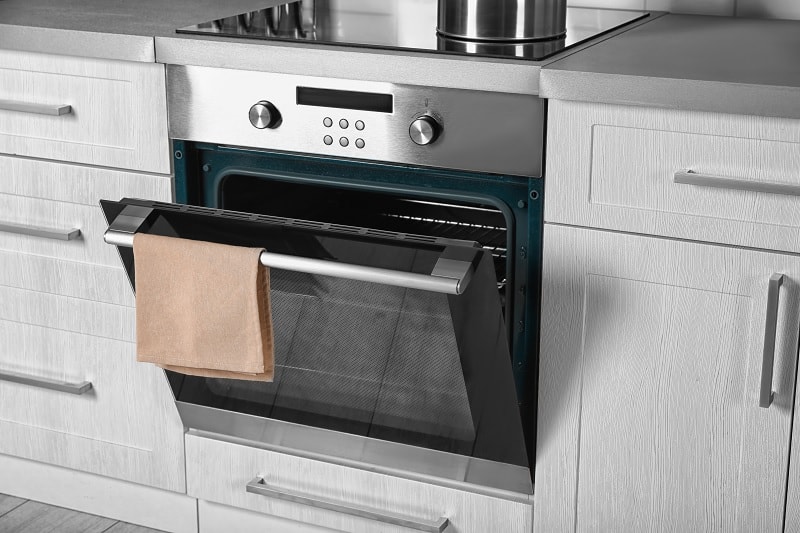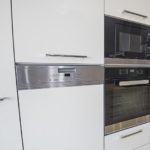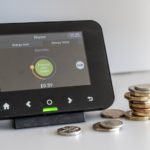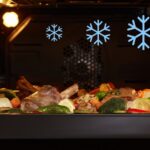Whether you want to save a bit of money or some energy, it’s nice to know how much money your appliances are costing you to run. Especially in these times of rising energy costs.
Changing energy providers can be a great way of saving money, of course. However, doing that alone won’t help you save energy.
Knowing how much an electric oven costs to run may make you think about how you use it and may change your energy-using habits.
So, let’s see just how much it takes to run an electric oven in the UK, shall we?
Cost of Running an Electric Oven in the UK
The average electric oven in the UK uses about 0.89 kWh of energy per use.
To calculate this figure, we found ten of the most popular electric ovens on AO.com and calculated the average energy use:
- AEG DUB331110M – 0.78 kWh per use
- Beko RecycledNet BBRDF21000X – 0.79 kWh per use
- Bosch Serie 2 NBS113BR0B – 0.8 kWh per use
- Bosch Serie 4 HBS573BB0B – 0.99 kWh per use
- Hotpoint Class 2 SA2844HIX – 1.05 kWh per use
- Indesit Aria IDU6340IX – 0.96 kWh per use
- NEFF N30 U1CHC0AN0B – 0.81 kWh per use
- NEFF N50 B2ACH7HH0B – 0.99 kWh per use
- Smeg Victoria DOSF6920N1 – 0.99 kWh per use
- Zanussi ZPHNL3X1 – 0.71 kWh per use
Standard electricity costs are 27.03 pence per kWh in the UK for the Energy Price Cap (EPC) period from 1 April to 30 June 2025.
Therefore, the average electric oven in the UK costs 0.89 x 27.03 = 24p per use.
Based on this, here is how much your electric oven will cost you if you use it once a day:
- 24p per day
- £1.68 per week
- £7.30 per month
- £87.60 per year
Now, as you may know, these electricity prices will vary from oven to oven. In fact, the costs above will vary if you use the hob more than the oven.
Also, these costs vary depending on how energy efficient your oven is too. So, the figures above are extremely rough.
You should be able to find out the energy usage of your particular oven by searching for the model number online or looking at your user manual.
However, exactly how much energy you use depends on how you use the oven, for example how high you heat it and whether or not you open the door frequently.
How Can You Reduce the Running Costs of an Electric Oven?
There isn’t really a good way of improving the running costs of an existing electric oven. You can’t exactly cook things on a higher temperature for shorter amounts of time, as you’ll start burning all your food.
If you want to decrease the energy your oven is using, your best chance is to buy a new oven.
If your oven is five years old or older, it may no longer be as energy efficient as a new one.
Even if your oven was very efficient when it was new, advances in oven efficiency in the last few years might mean that your current oven is no longer the most energy-efficient model out there.
Of course, buying a new oven won’t help you save money in the short term! The only real way to save money and energy in the kitchen without buying all new appliances is to turn them off at the wall after using them.
According to the Energy Saving Trust, the average household is wasting around £40 a year just by leaving appliances on standby.
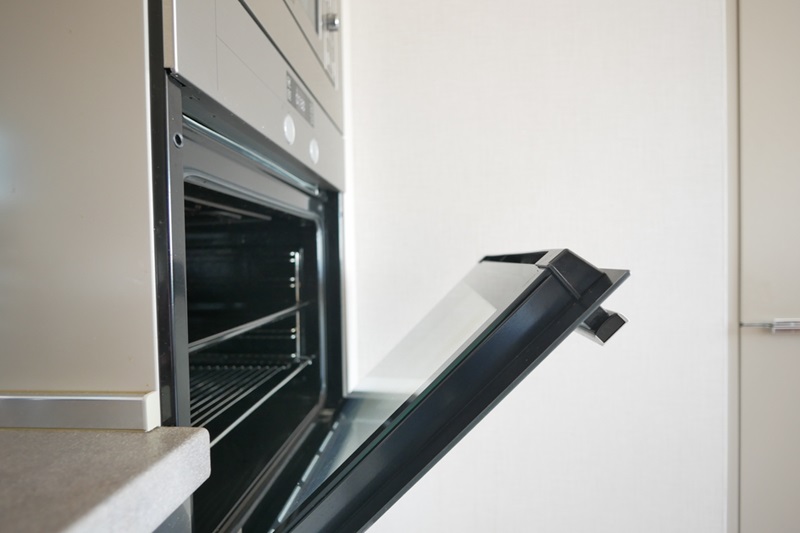
How to Save Electricity When Choosing an Oven
1. Consider the energy consumption rating
Buying an oven that has a good energy rating (A+ or A++) is a good way of saving money. These ovens use less energy to heat up and retain their heat while cooking, so it means that your oven isn’t constantly using electric to keep the heat up.
You can find out the energy consumption rating of any oven in the specification section on most retailer websites.
However, a higher energy rating doesn’t always reflect a low energy consumption rating. Oven size comes into play too—smaller ovens will use less electricity even if they are not technically more energy efficient.
Still, bear in mind that you may only save pennies a week no matter how low the energy consumption is.
2. Keep the oven door closed
Another good way of saving electricity while you are cooking is to keep the oven door close as much as possible. Whenever you open an oven door, it allows the heat to escape, and your oven must then heat the oven up again. So, when you are cooking, keep the oven door close as much as possible.
3. Use cookware that heats up quick and retains heat
Saving electricity on the hob is difficult. You can use cookware that holds heat in really well or use really thin cookware, so it heats up nice and quickly.
There are drawbacks to both types of cookware, though. For example, using cookware that holds heat nicely, cast iron cookware, for example, means that there is a longer wait time for it to reach a good temperature.
Using cookware that is thinner means that it will heat up faster, but the cookware won’t hold the heat in as well so you will need to keep the temperature of your hob higher.
So, in the case of the hob, it can be very tricky to make any notable savings by changing cookware. Instead, it is better to buy a more energy-efficient hob.

Scott is a writer and a passionate home chef. His passion for cooking began when he was 10 years old. Scott has been writing professionally for over five years now and loves to combine his passion for cooking with his day job.

